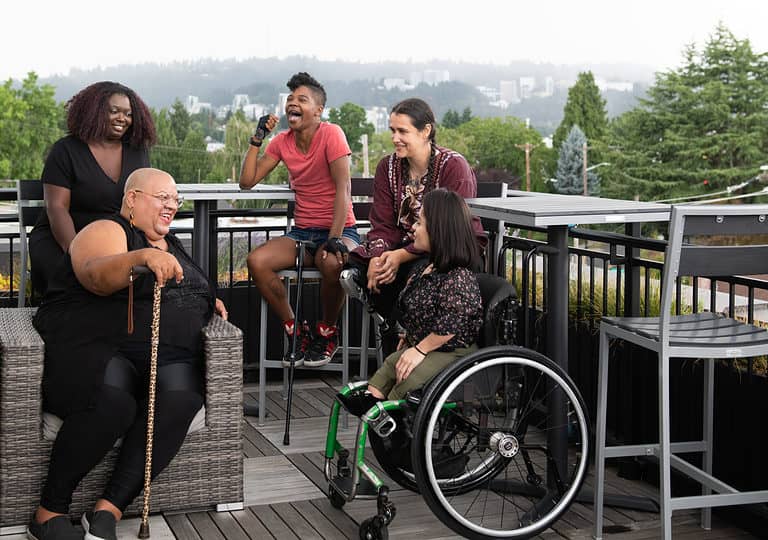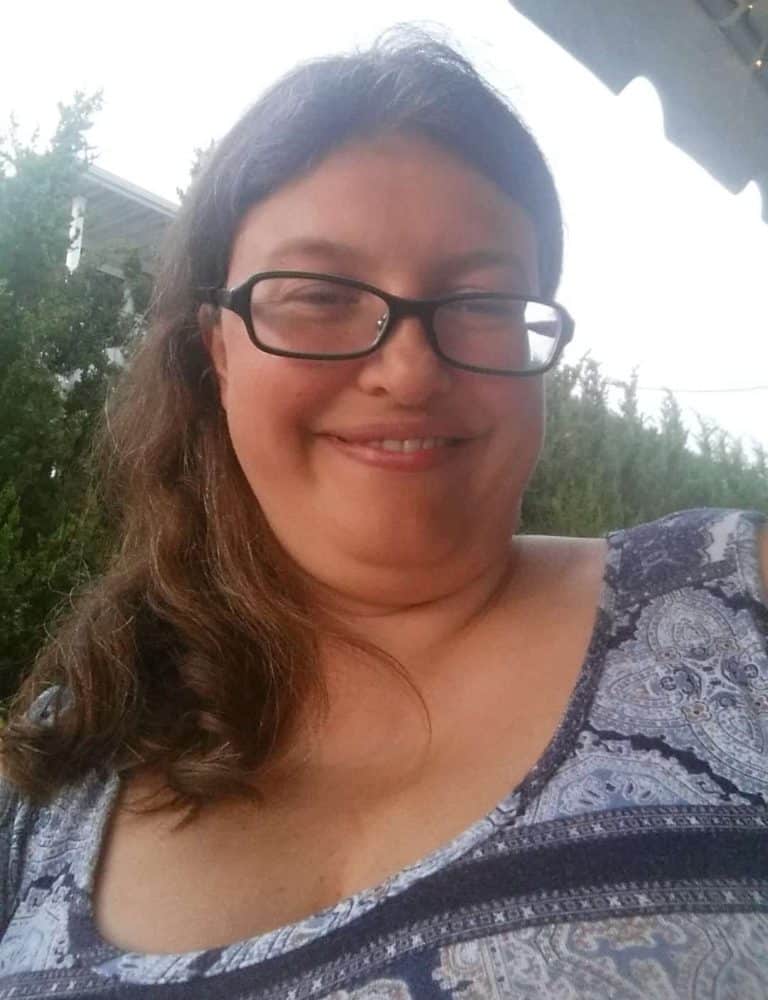You are an important and valuble person in and of yourself. Some people have trouble believing this after becoming disabled or having a severe injury or illness, but I am here to remind you that you are still special and that you still deserve to be happy! This post is all about taking care of yourself, and different aspects of how that may look or feel.
Physical self-care
Radical self-care is building healthy habits for yourself and sticking to them. Besides making sure you are well-hydrated, this can also include healthier eating habits, exercise habits, making medical appointments, and building up longer-term goals for your self-improvement.
While there are some aspects of radical self-care that are somewhat obvious(carrots have more fiber and vitamins than
The type and amount of exercise that would help you varies based on the specifics of your condition, how you physically feel, and what your exercise regimen looked like the days or weeks before that day. Part of radical self-care is consciously deciding what your personal exercise routines should be and how often you should practice them. Another aspect of this is recognizing that you may not be able to stick with this plan at all times, due to variables in your own day-to-day situation.
The key for taking good care of yourself, though, is to recognize what needs to be done, and recognizing when you can and can’t do them. If you can, be sure you do, and if you can’t, you don’t give up, but instead adjust yourself so that either you can do something less demanding, or you can plan on returning to your ideal habit as soon as you possibly can.

Healthier eating works in a similar way. Recognize where you are now in terms of your dietary habits. Then, think about how much mental and emotional adjustments you are prepared to make when it comes to food. You may need to start with some
I go through periods of being very focused on healthy eating – I will buy lots of fresh vegetables, try all different kinds of alternative
Dietary needs and restrictions vary based on many things including health conditions and long-term fitness goals.
If you are given dietary limitations, following them generally needs to be a priority. If you have an allergy or sensitivity, you need to learn how to avoid ingesting whatever it is you are sensitive or allergic to. If you have heart health-concerns or need to be on a low-inflammatory diet, you need to do your research and learn what you need to eat and
Learning these things isn’t always fun, but you will often feel better and have fewer flare-ups or lower your risk of death by adjusting your habits. While these adjustments aren’t always easy, they usually are better than the alternative. Whatever adjustments you need to make though, do your best to develop those shopping and eating habits that will help you to be complient with your diet, and do your best to find pleasure in the food you eat.
I spent a while on the interstitial cystitis diet, which is pretty
I have written a fair bit about the medical aspects of self-care, so encourage you to read those articles if you aren’t quite sure what I mean. What it does boil down to is that you want to make sure that you are seeing doctors that are best able to help you, getting the most out of each specialist appointment, and making sure that you aren’t being misdiagnosed, and getting a second opinion when needed.
Radical self-care isn’t just about your physical needs, either(those are just easier to discuss), but also about caring for your mental and emotional health.
Mental and emotional self-care
To take good care of yourself emotionally, you want to have and maintain positive relationships with others – finding and keeping good friends, maintaining good communication with those you live with, spending time with emotionally healthy family members and friends, and having the emotional and mental reserves to do this without it being detrimental to your health.
You may need to work on your emotions through practice in setting good boundaries, or by finding healthy outlets to express your emotions.

Radical self-care may involve spending time meditating or going for walks, or just being outside. It may also involve creating or adjusting your personal budget, trying to build new friendships, or screaming into a pillow on a regular basis.
Another aspect of radical self-care often is setting aside time to develop a mindfulness practice. Living in the moment helps you to get the most out of your life, and growing your self-awareness makes it easier to better know what your life goals really are.
Radical self-care does not look the same for everyone, as each person has their own limitations and needs, their own strengths and weaknesses, and is in their own place in their self-care journey.
A vital part of radical self-care is celebrating your victories. Nothing is too big or too small to celebrate, as each thing you do to take better care of yourself in the long term is another step towards you having a better quality of life.
adical self-care decisions
Another aspect of radical self-care is making sure that you will get what you need, even if that means taking full responsibility for things that shouldn’t be entirely your job. If you are going to be strongly affected by it, you may need to take an extra step or two to make absolutely sure that your needs are going to be met.
For example, I ask a lot of questions about scheduled doctor’s appointments and make sure that I know just what information they need, who they should get it from, and if there is anything I need to do to help the process.
Ideally, all that should just happen, but the reality is that many offices communicate poorly, don’t always do a great job at sharing information, and there is often an assumption that somebody else will do it.

So, for me, preparation for any specialist appointment doesn’t stop with making the appointment but instead ends when I know that they have all the medical information they need before seeing me. I also need to know precisely what I need to bring with me that day, as well as how to get there, what time my appointment is, and how early I should be.
All of those details shouldn’t be my job, but I am the one who will suffer if the specialist doesn’t have the right information.
So I make sure that the work is completed correctly.
This idea also applies to things like accessibility of venues you may go to(many wheelchair users have found to their frustration that a location isn’t as accessible as it claims to be), that hosts or caterers are aware of any allergies or sensitivities you may have(and can respond appropriatly), or that the airline knows that you will need assistence when you transfer between planes.
Anything that you can double-check to ensure your safety is probably worth doing. It is extra energy, and it is frustrating. However, knowing ahead of time often allows you to make the needed adjustments(either on their end or yours) so that you are able to live your best possible life.
You want to better know who you are and what you want out of life.
Planning ahead
Radical self-care is about managing
My FND symptoms completely disrupted my life plan and what I thought and expected that I would do with my life.
After I had some time to recover, I was able to start to think about my future and my new goals.
I spent the first year or so of symptoms assuming I could return to my old life once the problem was resolved. After I lost two different jobs due to my symptoms and learned that there was no

I broke down what I had and hadn’t enjoyed in my work experiences, and was able to recognize a skill that I had learned had the potential to be a good career.
I focused on thinking about what I had enjoyed, and what things might have still been possible to do given the limitations I was facing.
My radical self-care included deciding to go into Geographic Information Systems(GIS, the tool I had mentioned).
It also involved making sure that I could go to the classes I needed.
For me, that was getting financial support from DVRS and finding appropriate classes to attend.
Another part of that radical self-care was that I made sure that I didn’t overcommit on the class front.
I didn’t start off taking several classes at
Once I knew when my course started, I got as many of my other commitments completed or planned before my class began, and did my best to make sure that attending class was going to be as low-stress as I could manage.
Knowing your limits is vital – and knowing when you can and can’t push those limits is also essential.
If you are near the edge of what you can manage, it’s not time to push those boundaries – instead it’s time to see what you can do to make your life easier or more
Try to make changes one at a time, and give yourself time to adjust to each change and see how it affects you. Otherwise, you won’t know what helped or what made things worse.
Conclusion: Radical self-care in action
Whether it’s doing things the night before to give yourself a better morning, buying healthier food at the store so that you’ll make healthier meals, or making sure you have the energy to get together with that friend next week, your self-care habits help you be more likely to succeed.
Of course, you do want to be able to help and care for the people you love. You can do that too as you create a good balance for yourself.
With your base needs are taken care of, you’ll have more energy to spend on your family, pets, or friends.
By taking care of yourself first, you will be able to keep doing so in a sustainable way that reduces the risk of disappointment, for all of you.
The better and more consistently you care for yourself, the better you model radical self-care for those around you, and the less likely you are to need extra help from your loved ones. As you find the right balance in yourself, you will be better and better able to recognize how you can help and support your loved ones without having it take away from your happiness or quality of life.
When you take care of you first, everybody wins in the long run.







